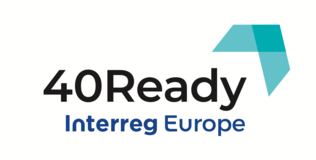The second stakeholders meeting (online) in Bucharest-Ilfov region was held on July 29, 2020, and was attended by 15 participants, both public and private sector, including representatives from:
- Ministry of Economy, Energy and Business Environment
- Universities
- Enterprises: Romanian Digitization Authority, BEST SMART CONSULTING SRL, OMEGA CONSULTING, euRobotics, Digitaltwin, INMA-ITA, Factory 4.0
- Technological and Business Incubator Coordinator
The meeting’s objective was the direct consultation for changing public policies in Romania regarding the impact of the Industrial Revolution 4.0 on SMEs and it was focused on two questions:
- What good practices do stakeholders know about the state support (through public policies) given to SMEs in adapting to the Industrial Revolution 4.0?
- What are the public policies in which immediate action can be taken?
As for the first question, many ideas were generated such as the following:
- Policies to stimulate the establishment and development of IT and technology clusters. Structures representing the demand called "meta clusters" already exist. An example of these are clusters from the furniture industry or organic agriculture collaborated with IT clusters, bringing together the offer of solutions to identify needs and how to solve them through integrated solutions and with prices reflecting the real market.
- Financing and demand support policies. An excellent program existed during the EU funding period 2007-2013 through the POSCCE program Axis 3. Programs 3.3.1 and 3.3.2. SMEs from different industries used to receive substantial funding (up to 800.000 euros) to digitize - the implementation of ERP- CRMs or WMSs being the most common. An example of a successful project is SEDA INVEST.
Regarding the second question, the most relevant contributions were:
- Continuous stimulation of existing IT clusters focused on SMEs
- Fiscal incentives for SMEs that make direct investments in digitization / automation / robotization, etc.
- Grant programs to stimulate demand (such as POSCCE 3.3.2 & 3.3.1)
- Tax advantages aimed at stimulating supply
- Inclusion in the existing fund programs on IT/automation the consulting component.
- Inclusion of some elements related to digitisation, robotisation and automation in universities curricula in order to help define in advance a picture of the possibilities for business development 4.0.
The conclusions and proposals resulting from this workshop will be the subject of further analysis in the 40Ready project hopefully aimed at getting concrete proposals to change public policies in Romania, to support SMEs to adapt quickly to digital transformation.
Here below some pictures taken during the online event:















